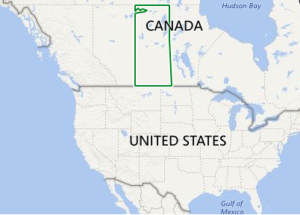The “Saskatchewan Experiment” – Informing California Health.
Posted on | April 3, 2017 | Comments Off on The “Saskatchewan Experiment” – Informing California Health.

Mike Magee
One of the driving misperceptions about the Canadian health care system is that it is a centrally run and directed delivery system, nationalized from start to finish, top down and authoritarian. That bias, reinforced actively in the U.S., is and has been inaccurate from the start. Understanding this bias could be useful as our nation struggles with the next steps in our own health system evolution.
The Canadian system originated in the province of Saskatchewan, in central Canada. The province had always had a progressive streak and in 1947, in the wake of WW II, launched the first provincial universal hospital insurance plan. The other provinces and territories, as well as the national government, watched the experiment with interest for nearly a decade.
Then in 1957, Canada passed the Hospital Insurance and Diagnostic Services Act which provided 50/50 cost sharing between the federal government and any of 13 provinces and territories that chose to participate in universal coverage of their respective populations.
Seven years later, with all provices and territories voluntarily aboard, Canada’s Royal Commission on Health Services recommended and soon succeeded in launching a comprehensive and universal national health program. Under the system, Canada itself became the sole payer, managing an insurance program universally available to all citizens, including all claims management.
A federal governance body was in charge of standards, but the delivery of care was strictly delegated to the provinces and territories which themselves managed and prioritized annual budgets, and designed their own governance systems.
This commitment to centralized claim management coupled with decentralization and self-determination of budget priorities and delivery of care, now a half century later, continues to define a system which is by no means perfect, but significantly outperforms our own in both quality and cost efficiency.
Our own half century has been tumultuous. But a recent development seems to suggest some desire to start over, and perhaps use the “Saskatchewan Experiment” as a model. I refer to a California bill, SB 562, sponsored by the Califronia Nurses Association. If passed, the state would provide comprehensive medical coverage to all California residents regardless of income or immigration status. There would be no co-pays, no deductibles, no restrictions on provider eligibility.
The plan would not rely on private insurers but would administer claims through a nine-person unpaid board that would be appointed by the California Legislature and the governor. There would also be an appointed health professional and consumer advisory board.
Unlike the small state experience of Vermont (population 620,000), California has nearly 40 million residents, which creates size and scope and diversity to allow for successful risk sharing. As for funding, the state would require a waiver from the federal government to steer Medicare and Medicaid dollars into the state effort. In addition, citizens would pay additional taxes, but they’d no longer have to pay for health insurance themselves.
To many, this sounds like a reach. But a half century ago, so did the “Saskatchewan Experiment”. We should give California a chance. We might like the results.
Tags: California > California SB 562 > Canada health care > health care > health delivery > health reform > Saskatchewan


